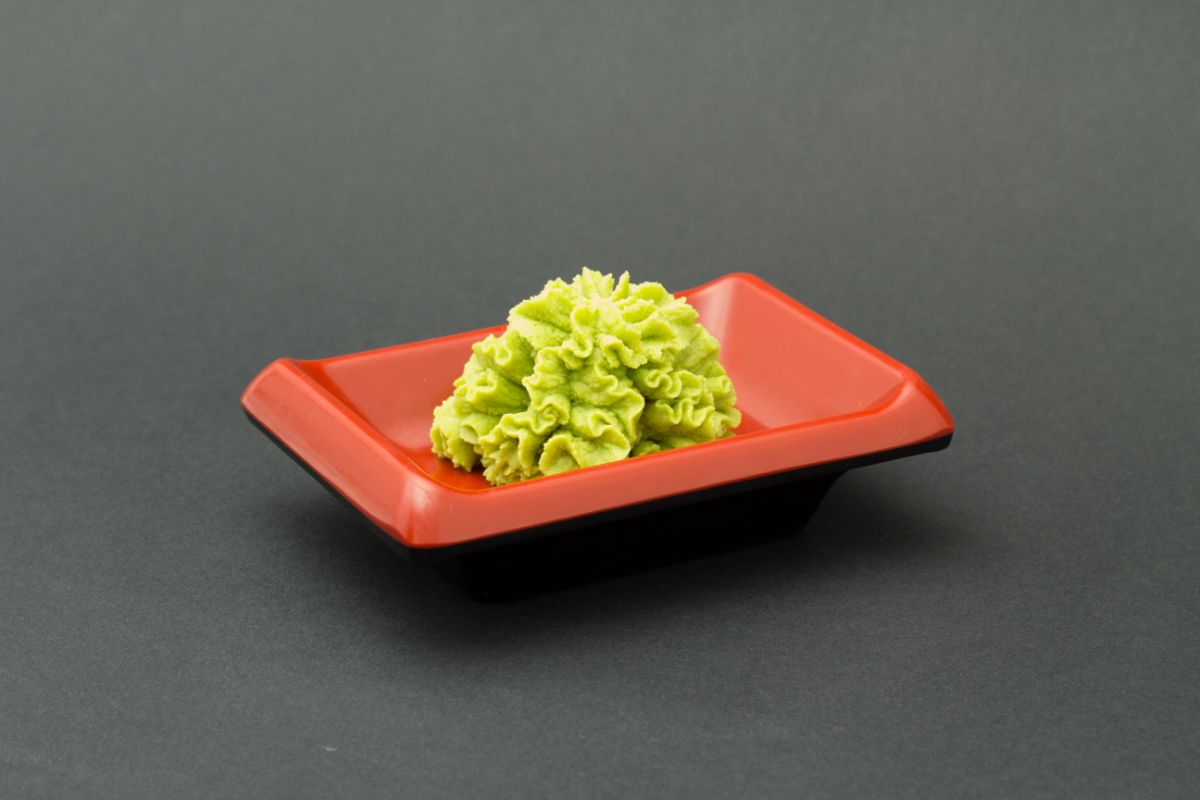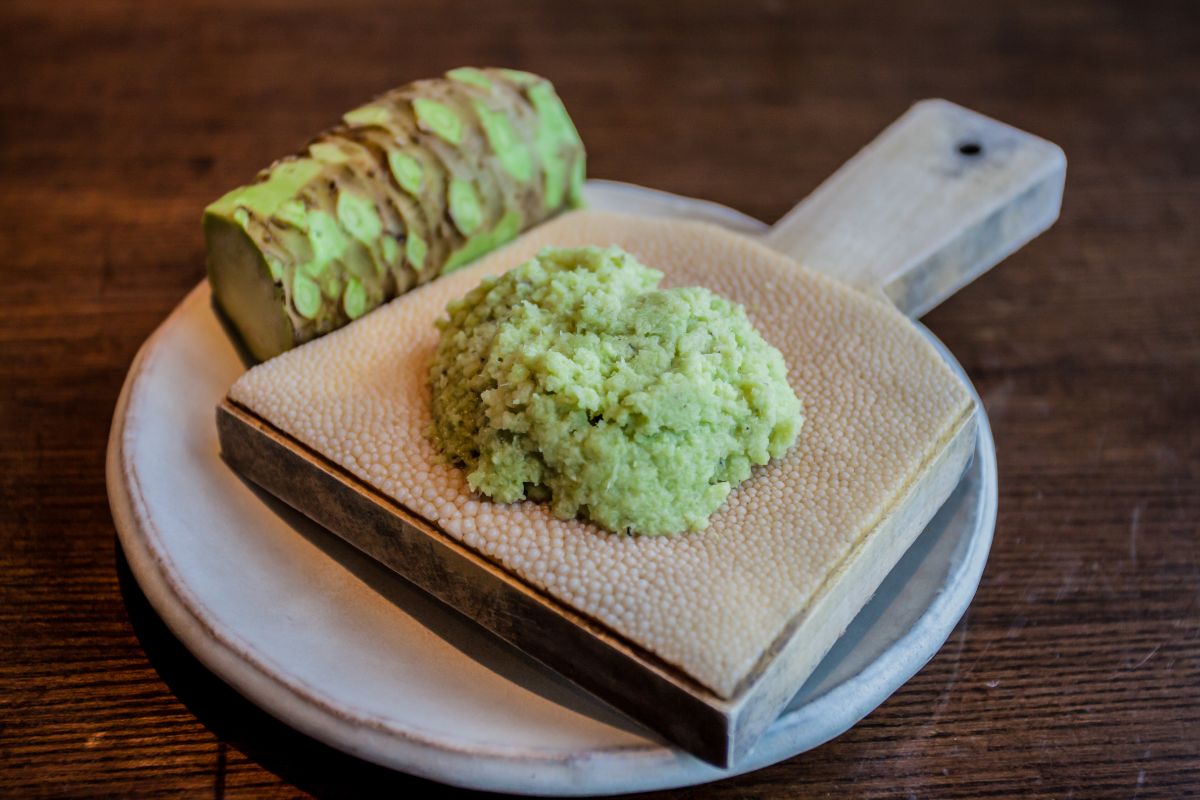Wasabi is known to be a spicy ingredient that is savored in Japanese cooking. This rare ingredient is well-loved and used in a number of dishes and snacks, including soba, sashimi, sushi, wasabi peas, and even Ramune!
However, even though it is popular, there are still questions surrounding it – is it healthy? Is it suitable for diabetics?

If you are a diabetic and want to try wasabi, you might feel like you need to put all your questions to bed before trying it.
Lucky for you, we are going to cover everything you need to know.
From what wasabi actually is (and what it is not), and how spicy it is, and if it is a good option for diabetics – we’ve got you covered. Stick around and find out the answers to all your questions.
What Exactly Is Wasabi?
“Wasabi” is the name given to a plant belonging to the Brassicaceae family known as Japanese horseradish.
There are a number of other plants in this family, including regular horseradish and mustard, which many of you might be familiar with. If you are, then you already know that wasabi is going to pack a punch.
This ingredient is a root rather than a spice. It comes from the rhizome of the wasabi plant! This rhizome (underground stem) of the wasabi plant gets harvested before being very finely grated into a paste.
Doing this ensures that the paste is nice and smooth, without any chunky bits like you can expect to see in similar products like ground ginger.
Not only is the texture completely different, but the taste is, too. It can be difficult to accurately describe the flavor of wasabi.
It is often described as being plant-like and herby but with a surprising hint of pickle in there. The flavor is not overpowering, so you can still enjoy foods with more delicate tastes and profiles with it.
How Spicy Is Wasabi?
The potent vapors that get released from wasabi are what make it so spicy. Anyone who isn’t used to it will probably experience a fair amount of eye-watering, especially if you are not expecting it.
The heat from wasabi is thought to be similar to that of the popular jalapeño pepper. These peppers can be anywhere from 2,500 to 8,000 Scoville Heat Units.
While they are certainly not the spiciest peppers around, they pack a nice punch. Anyone who enjoys a bit of a kick should be able to handle these peppers without a problem – which means you can handle wasabi, too!
With that being said, the major difference between wasabi and chili peppers is that the vapors from wasabi make it hot. Because of this, wasabi has to be dealt with differently compared to peppers.
Reaching for the milk to quash the vapors of wasabi will not work, but drinking tea beforehand will help! If you want an even better option, carbonated drinks will work nicely to reduce the burn from the vapors.
How Is Wasabi Used?
Wasabi gets used by tiny dabs of it being added to your food. It is normal for people to dab the wasabi on one side of the sushi, then turn it over and dip the other side in soy sauce.
This will allow you to get the perfect balance of all the flavors in whatever you are eating.

Is Wasabi Good For Diabetics?
Surprisingly, wasabi is often actually recommended for diabetic patients by some doctors! This is because the root can help to stabilize a person’s blood sugar levels. This is especially accurate for wasabi snacks like wasabi peas.
So, yes – wasabi is excellent for diabetics.
However, there are a number of health benefits that wasabi is claimed to have. These health benefits are one of the many reasons why wasabi has become incredibly popular all around the world.
Does Wasabi Have Any Other Health Benefits?
There are lots of potential health benefits to eating wasabi. These benefits have increased the demand for this root globally, which has in turn made the real thing rarer than ever.
You may notice in many cases that ingredients that are advertised as wasabi in some restaurants are not actually the real deal.
However, if you can get your hands on the real thing, you can expect some of the following health benefits:
- Antibacterial properties – ITCs (Isothiocyanates) can help to protect against foodborne illnesses or food poisoning as the antibacterial effects against Staphylococcus aureus and Escherichia coli O157:H7 are well-documented. ITCs could also have antibacterial effects against other bacteria we often deal with – h. Pylori and the peptic ulcers it causes.
- Anti-inflammatory properties – studies done via test tubes have indicated that the ITCs found in wasabi could suppress the enzymes and cells that ultimately cause inflammation. This would be especially useful as inflammation is an incredibly common issue of the immune system’s response to pollution and toxins.
- Could promote fat loss – the extract from wasabi leaves may be useful in preventing the growth and formation of fat cells in studies conducted via test tubes and animals.
- Could have anti-cancer properties – the ITCs in wasabi could have anticancer properties, according to research. Test tube studies have indicated that ITCs may be able to inhibit or kill the growth of some cancers in humans, such as pancreatic, oral, breast, and colorectal. However, much more research is needed for this to be taken as fact.
- May promote bone health – HCA (p-hydroxycinnamic acid) may play an important role in promoting and maintaining bone health and formation as found in animal studies. Research has shown that this compound in wasabi could also aid in the treatment of diseases like osteoporosis.
- May promote brain health – the ITCs found in wasabi could play a role in protecting your brain and promoting good brain health, according to studies. It could also slow down or even prevent neurodegenerative disorders that are caused by inflammation (like Parkinson’s disease).
As is usually the case, much more research is needed on humans for the above to be taken as fact. However, since enjoying some wasabi will not harm you, there is nothing stopping you from indulging when the chance arises.
Final Thoughts
Wasabi, or Japanese horseradish, is a notoriously spicy ingredient served alongside many of our favorite Japanese dishes.
Not only is wasabi delightfully spicy, but this food is an excellent option for people with diabetes, as it could have a wide range of potential health benefits.
Some doctors recommend that diabetics enjoy wasabi peas for a number of reasons – particularly since they can help control your blood sugar levels.
There is very little sugar that naturally occurs in wasabi, so it is safe for anyone with diabetes to enjoy, provided they can handle the potent vapors.
So, if you are a diabetic and have been wondering if you can enjoy wasabi – you absolutely can! Just make sure that you know what you are getting into, and have the appropriate drinks at hand for when the heat kicks in.
- 16 Best Websites To Watch Japanese Movies With English Subtitles - May 11, 2023
- Is ZIPAIR The Best Airline For Traveling To Japan? - May 11, 2023
- Ryu Murakami Vs Haruki Murakami – Which One Should You Read? - May 11, 2023





![How To Eat Wasabi The Japanese Way [Ultimate Guide] How To Eat Wasabi The Japanese Way [Ultimate Guide]](https://justaboutjapan.com/wp-content/uploads/2023/03/How-To-Eat-Wasabi-The-Japanese-Way-Ultimate-Guide-150x150.jpg)


